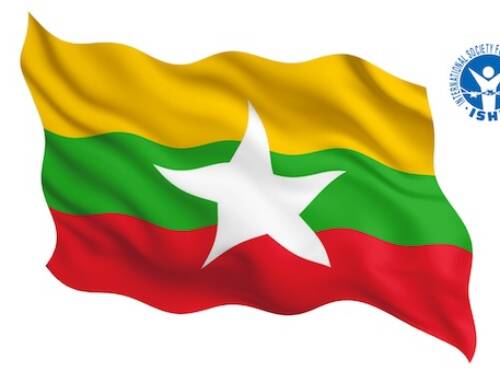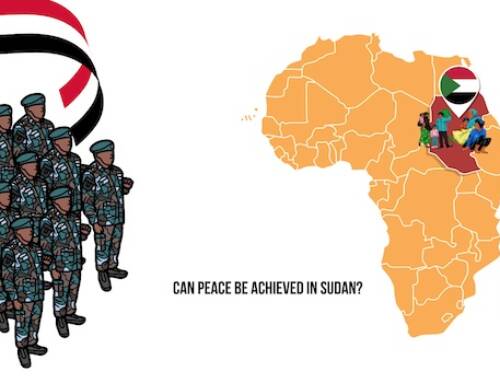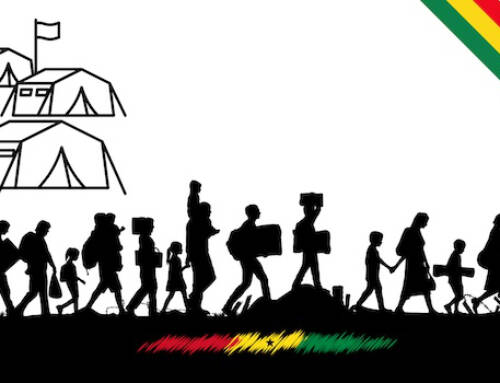CHINA

Organ Harvesting
Organ harvesting is essentially ‘killing on demand’, which is the selling and transplanting of the organs of victims. The origin of tens of thousands “donor” organs in the People’s Republic of China remains completely unclear. More than likely, this is due to thousands of people in China becoming victims of organ harvesting. To the extent of our knowledge, the victims primarily consist of arbitrarily jailed prisoners from Chinese labor camps and ‘re-education’ facilities. Organ harvesting is largely a synonym for the legal expression “organ trafficking”, which can be more broadly interpreted. People also become victims of organ harvesting in other countries, especially on the Sinai Peninsula and in India.
At a glance
 In the People’s Republic of China as well as in several other countries, organs are taken from victims against their will in order sell the organs illegally. The majority of victims likely die as a result of having their organs removed. Even though evidence is difficult to obtain, there is an abundance of clear indications that thousands of completely innocent people from Chinese labor camps have been ‘sentenced’ to death in recent years, in order to profitably sell and transplant their organs.
In the People’s Republic of China as well as in several other countries, organs are taken from victims against their will in order sell the organs illegally. The majority of victims likely die as a result of having their organs removed. Even though evidence is difficult to obtain, there is an abundance of clear indications that thousands of completely innocent people from Chinese labor camps have been ‘sentenced’ to death in recent years, in order to profitably sell and transplant their organs.
On the Sinai Peninsula, the victims are refugees from East Africa. In some emerging nations, victims are generally people living in abject poverty who do not understand the consequences of organ removal, and whose desperate situation is exploited. “Organ harvesting” is the colloquial synonym for the formal legal term “organ trafficking”. Organ trafficking is internationally banned and forbidden in Germany; however, it continues to play a role for Germany due to ‘transplant tourism in countries like the People’s Republic of China.
Where and to what extent does Organ Harvesting take place?
Organ harvesting or evidence of organ harvesting exists in various countries in the world, especially in China, India, and on the Sinai Peninsula.
People’s Republic of China
Organ transplantation in the People’s Republic of China is booming, with the number of transplants rising. A distribution system for donor organs as in Europe, or a culture of organ donation, does not exist. Thus, the origin of tens of thousands of organs is remains unclear. Numerous pieces of evidence suggest that people were murdered on this scale in order to sell and transplant their organs – indeed, with the involvement and support of government agencies. Thus, the most cases of organ harvesting in the world by far take place in China.
Sinai Peninsula
According to the World Health Organization (WHO), Egypt has become a regional hub of organ trafficking. In 2010, at least 14.000 refugees were brought over the border into Israel by smuggling networks. On their way through Egypt, the refugees and migrants are frequently intercepted by organized criminals and are released only through a ransom. According to the UN Refugee Agency, if family members of the refugees cannot pay a ransom, they are sold to gangs in the northern Sinai, where they often killed and robbed of their organs.
Who are the victims?
Camp prisoners in the People’s Republic of China

Harry Wu, a former camp inmate and ISHR board member, as the first to report about the removal of organs from executed prisoners
Today, the People’s Republic maintains the largest forced labor camp system in the world. Approximately 1,000 camps are part of the so-called “Laogai” complex. According to various estimates, the Chinese authorities exploit between three and seven million people as slaves – seven days a week, sometimes up to 18 hours a day. Torture and violence, insufficient food and water, sleep deprivation, and the denial of medical care are everyday occurrences for many prisoners.
A huge number of prisoners are detained completely arbitrarily, without having committed a crime. Chinese police departments can (without judges or lawyers) ‘administratively’ admit citizens of the People’s Republic to forced labor camps for “re-education through labor” for up to four years – without an accusation, a court procedure and without the possibility of defense or appeal. Evidence suggests that followers of Buddhist meditation school Falun Gong who have been arbitrarily imprisoned are especially likely to become victims of organ harvesting. However, Uyghurs and other prisoners are also frequent victims of organ harvesting.
Condemned to Death
In 2005, the People’s Republic of China admitted that organs of executed people are removed, even though this practice violates international law. Chinese human rights activists report that inmates on death row are forced to sign organ donation forms. According to various estimates, several thousand people are executed every year in the People’s Republic – the exact number is state secret. Previously, those condemned to death were executed primarily through being shot in the head, and later often through lethal injection. Today, executions must take place at least in part through organ removal in order to ensure the quality of the organs. In the People’s Republic of China, the death penalty can be imposed for a number of offenses that are not internationally considered felonies. In many cases, Chinese courts impose the death penalty based on confessions obtained under torture.
Refugees and Victims of Poverty
Refugees from Eritrea, Sudan and Ethiopia who try to reach Europe through Egypt or Israel are especially vulnerable to becoming victims of severe human rights violations in the Sinai region, including organ harvesting.
What is the evidence?
The Chinese authorities consistently block access to information and on-site inspections. Therefore, it is very difficult to obtain judicial evidence. However, there is a wealth of compelling evidence proving that people are killed for their organs on a large scale in the People’s Republic of China. The reason and starting point for all research was and is the completely unclear origin of thousands of “donor” organs.

Former Secretary of State David Kilgour (right) And the Canadian human rights lawyer David Matas (left) have been systematically searching for evidence of the murder of thousands of prisoners for organ trafficking since 2006.
In the People’s Republic of China, there is an aversion to organ donation due to cultural reasons. Nevertheless, the People’s Republic of China performs the most organ transplantations per annum after the USA. Where do these donor organs come from? The Chinese authorities and transplant facilities refuse to provide further information.
Even though central Europe has a culture of donation, a well-developed distribution system and excellent infrastructure, the waiting time for a suitable donor organ is often very long. In China, there is no central database to enable a rapid allocation of donor organs, and there is no infrastructure which could enable the immediate transport of a donor organ (e.g. of an accident victim to a patient). A very fast and effective coordination is mandatory for donor organs. This poses a considerable logistic challenge, as each recipient can receive only organs whose tissue features match his or hers. Why are the waiting times for suitable organs inexplicably so much shorter than in Europe? Why is the People’s Republic able to plan transplants of an unknown “donor” a day in advance? The term “killing on demand” has been established for the People’s Republic of China.
Questioning of numerous former prisoners has provided strong evidence for a huge number of political prisoners being murdered for the explicit reason of using their organs.
European Parliament Resolution concerning the Removal of Organs in China
Man-Yan Ng, board member of the ISHR, commented: ‘The resolution of the European Parliament from December 12, 2013 clearly and emphatically condemns a crime against humanity, namely systematic organ harvesting which is approved by the government against practicing Falun Gong followers and other prisoners of conscience in the People’s Republic of China. This is a historic step; the European Parliament took a leading role in this criticism. Many national parliaments in Europe are also prepared to take similar measures. The resolution is a clear signal to the ruling Chinese Communist Party: The international community will no longer overlook these monstrous crimes.
Transplant tourism – organs on demand
For some wealthy foreign patients, matching organs that are accessible without significant waiting periods in China are an attractive alternative to the long waiting time outside of China.
Organ trafficking has been banned worldwide since 2007, and is officially banned in the People’s Republic of China. However, Chinese authorities have not taken any measures to enforce the prohibition of the trade. A number of transplant centers continue to advertise extremely short waiting times. Some of these facilities are state-run, including those controlled by the Chinese military.
Some states have adapted their own regulations to address the completely non-transparent procurement of organs in China. Transplant tourism has been prohibited in Israel since 2008. Due to an initiative by the Japanese Society for Transplantation, transplant tourism has also been banned in the People’s Republic of China since 2010.
Demands of the ISHR
An International Investigative Mission to clarify the origin for the People’s Republic of China to clarify the origins of several ten thousand donor organs and the presumed murder of thousands of political prisoners.
Termination of cooperation of German and European clinics, research centers and pharmaceutical companies with Chinese transplant centers, and ending training of Chinese transplant specialists in Germany.
No coverage of costs by German and European health insurances for costs in connection with transplants performed in the People’s Republic of China.
Legal Regulations that prevent German and European patients from taking part in transplant tourism to the People’s Republic of China.
Tranparency of Chinese authorities and institutions.
A system of organ donation based on voluntary nature in the People’s Republic of China, including a nationwide data base. The European solution Eurotransplant can serve as an example.






